The future of the biotechnology industry in the field of bio-production, health and bio-tissue engineering within the activities of Ain Shams University conference
In light of the rapid and successive developments the world is witnessing now in the field of biotechnology industries, and within the activities of the eleventh annual conference of Ain Shams University entitled Knowledge Economy for a Better Life, throughout the second day of the conference, a biotechnology session was held in the field of bio-production, health and tissue engineering Biotechnology, in cooperation with the Faculty of Biotechnology, October University for Modern Sciences and Arts, and the Department of Veterinary Services of the Egyptian Armed Forces
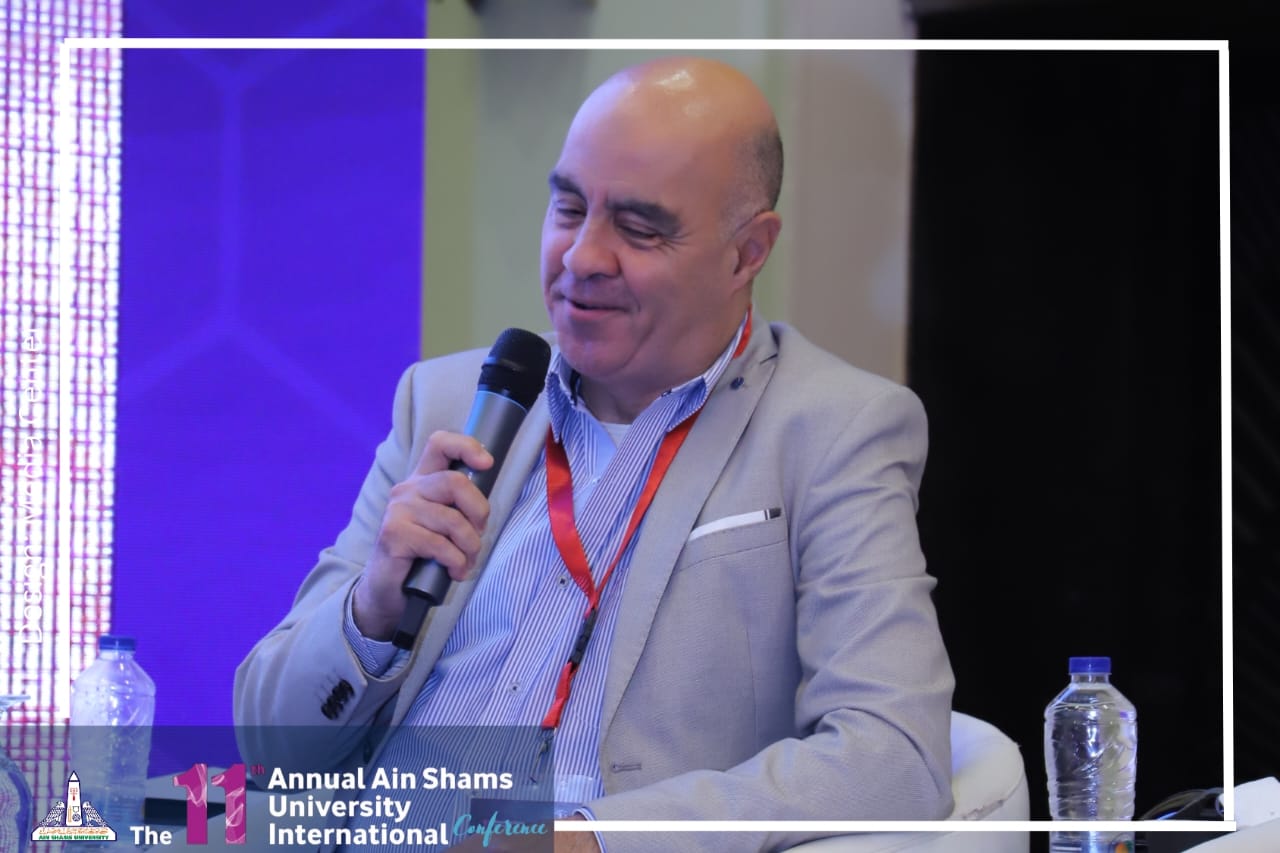 |
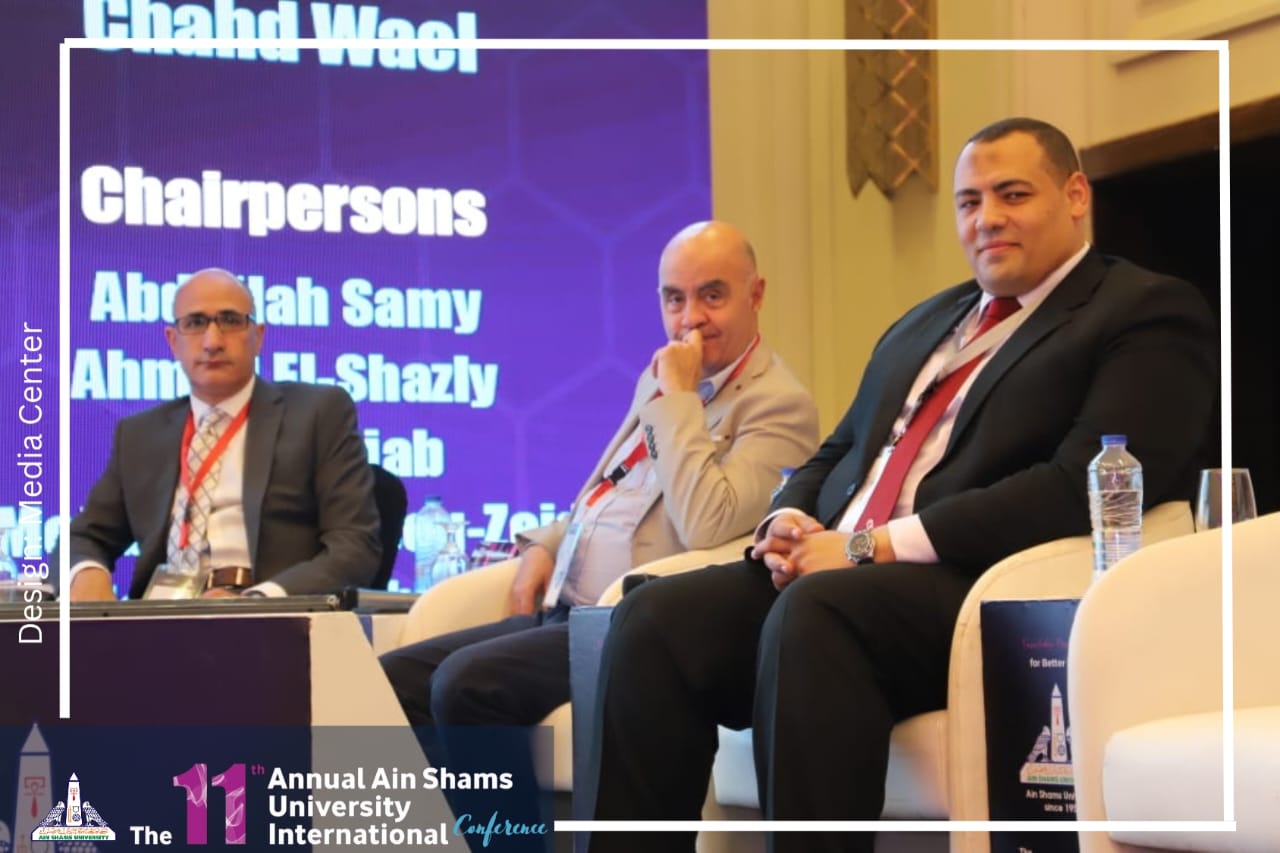 |
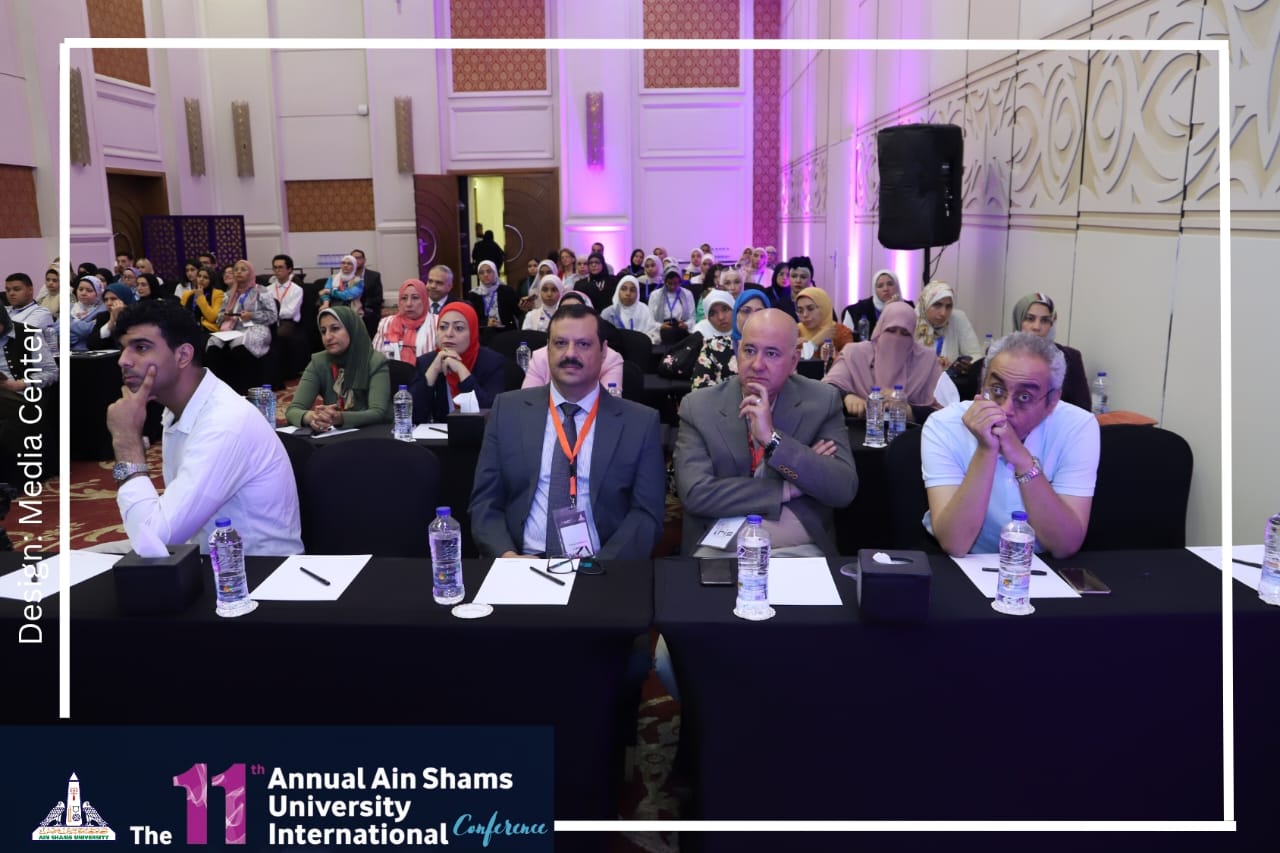 |
||
Supervising the moderation of the sessions on the future of biotechnology industries in the fields of bio-production, health, and tissue engineering: Prof. Dr. Ayman Diab - Dean of the Faculty of Biotechnology at October University for Modern Sciences and Arts, Prof. Muhammad Abdel Montaser Abu Zaid - Vice Dean of the College of Science for Postgraduate Studies and Research, Prof. Wael Samir - Coordinator of the Applied Biotechnology Program at the Faculty of Science, Ain Shams University, Dr. Abdullah Sami, Assistant Professor at the Ain Shams Medical Research Center and Faculty of Science, Major General Doctor Ahmed El Shazly - Director of the Veterinary Services Department of the Armed Forces, and Brigadier General Muhammad Shendi - Commander of the Veterinary Hospital of the Armed Forces.
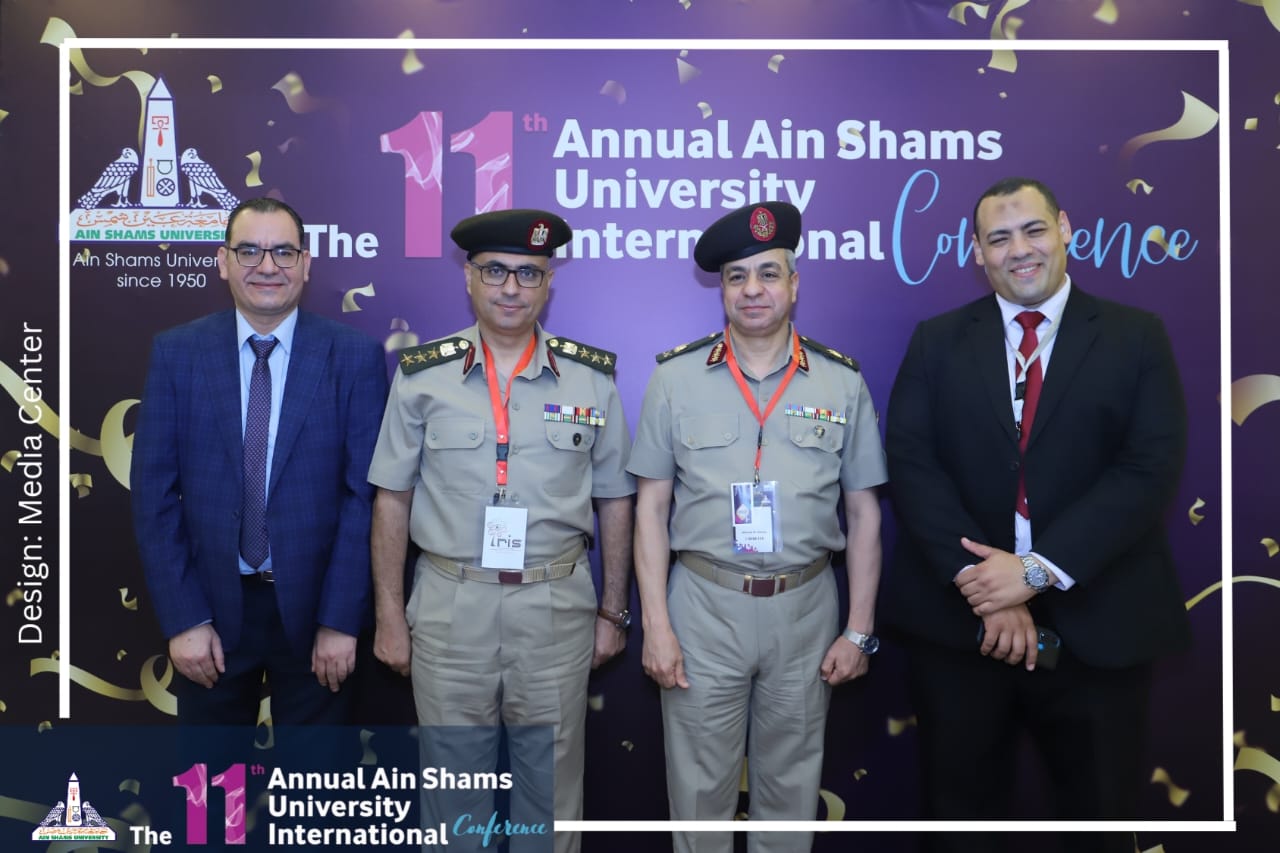 |
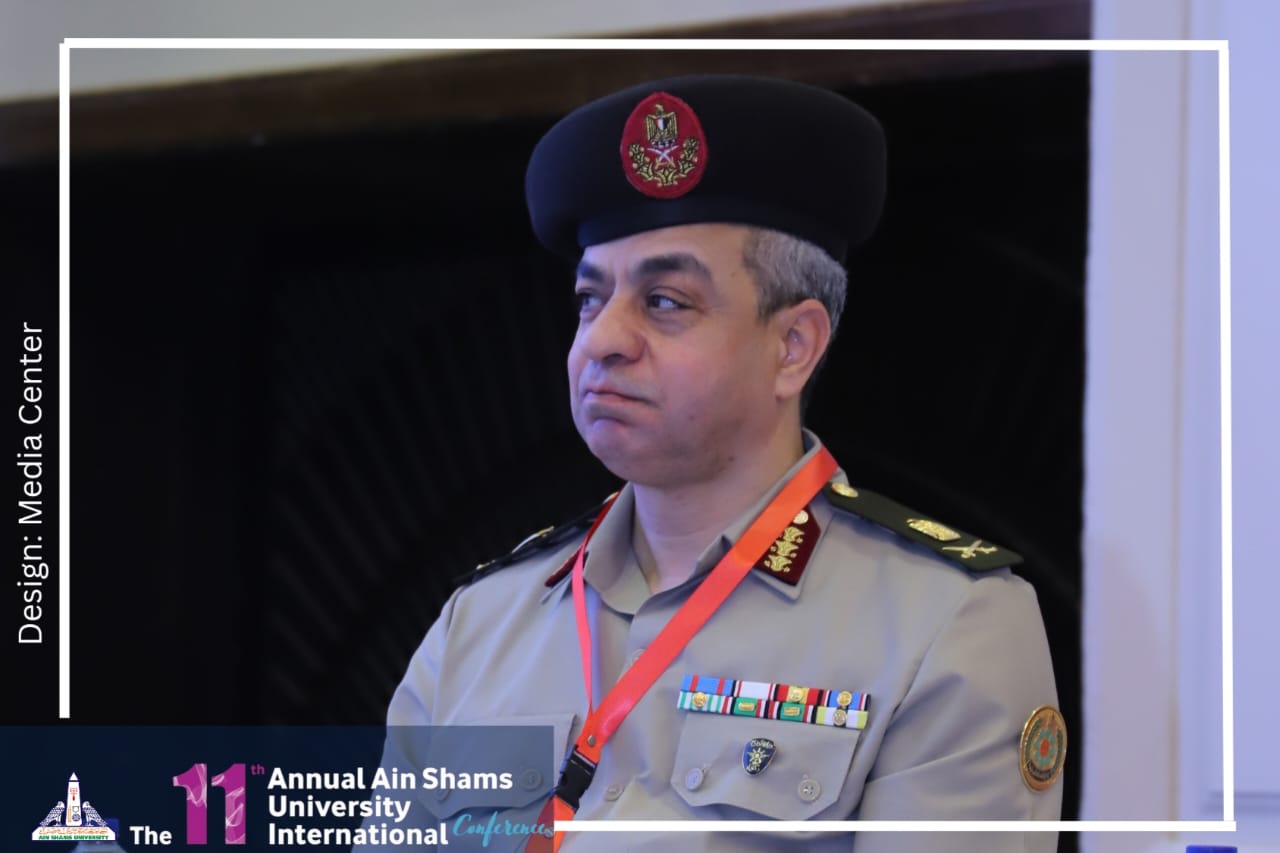 |
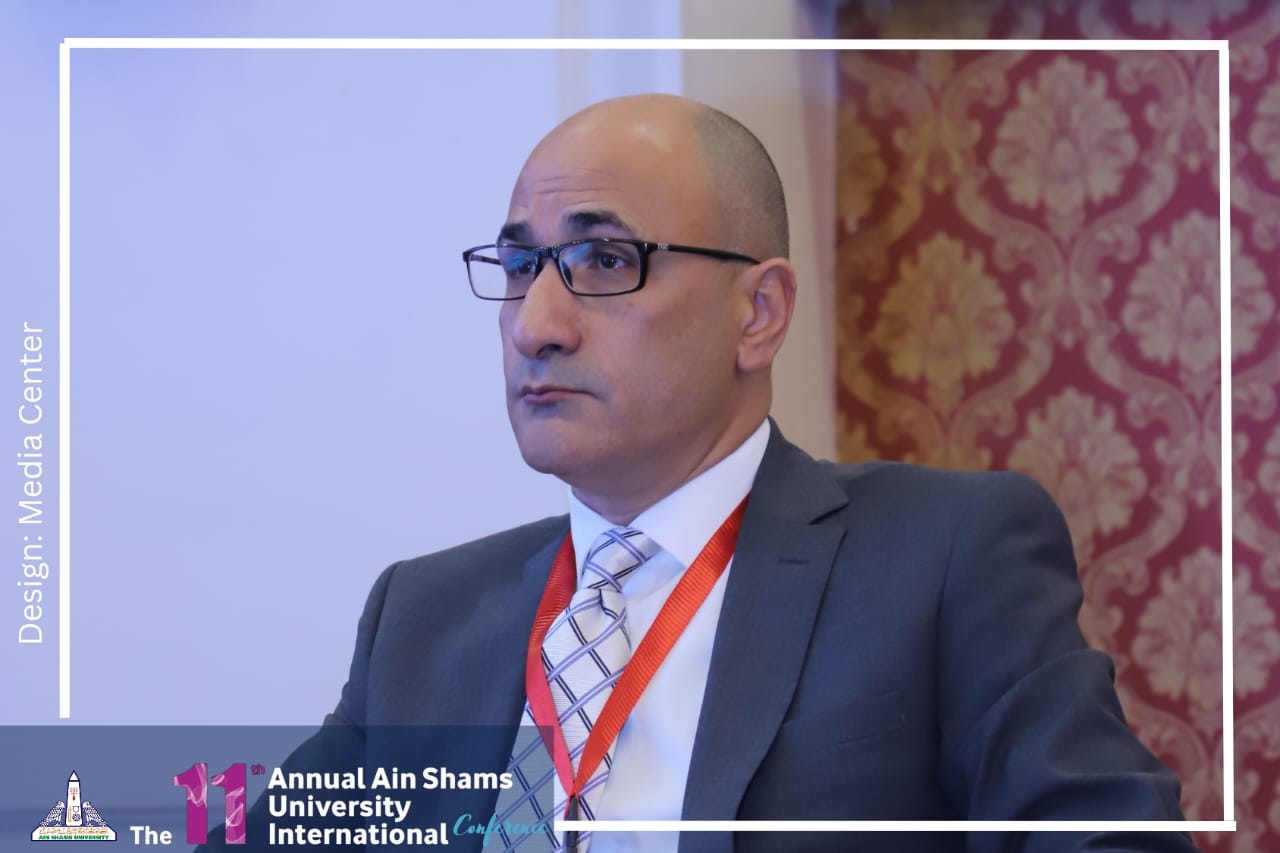 |
||
During the activities of the first session, "Biotechnology Innovations: Biomaterials and Bioengineering", Prof. Dr.. Wael Al-Maslamani, Professor of Environmental Biotechnology at the Arabian Gulf University in the State of Bahrain, sheds light on the applications of biotechnology in improving the quality of heavy crude oil by using biocatalysis techniques and making specific chemical changes to improve quality and maximize extraction from wells and refining, which leads to an increase in the economic value of crude oil in addition to reducing the impact of pollution. potential and increase the possibility of biological treatment.
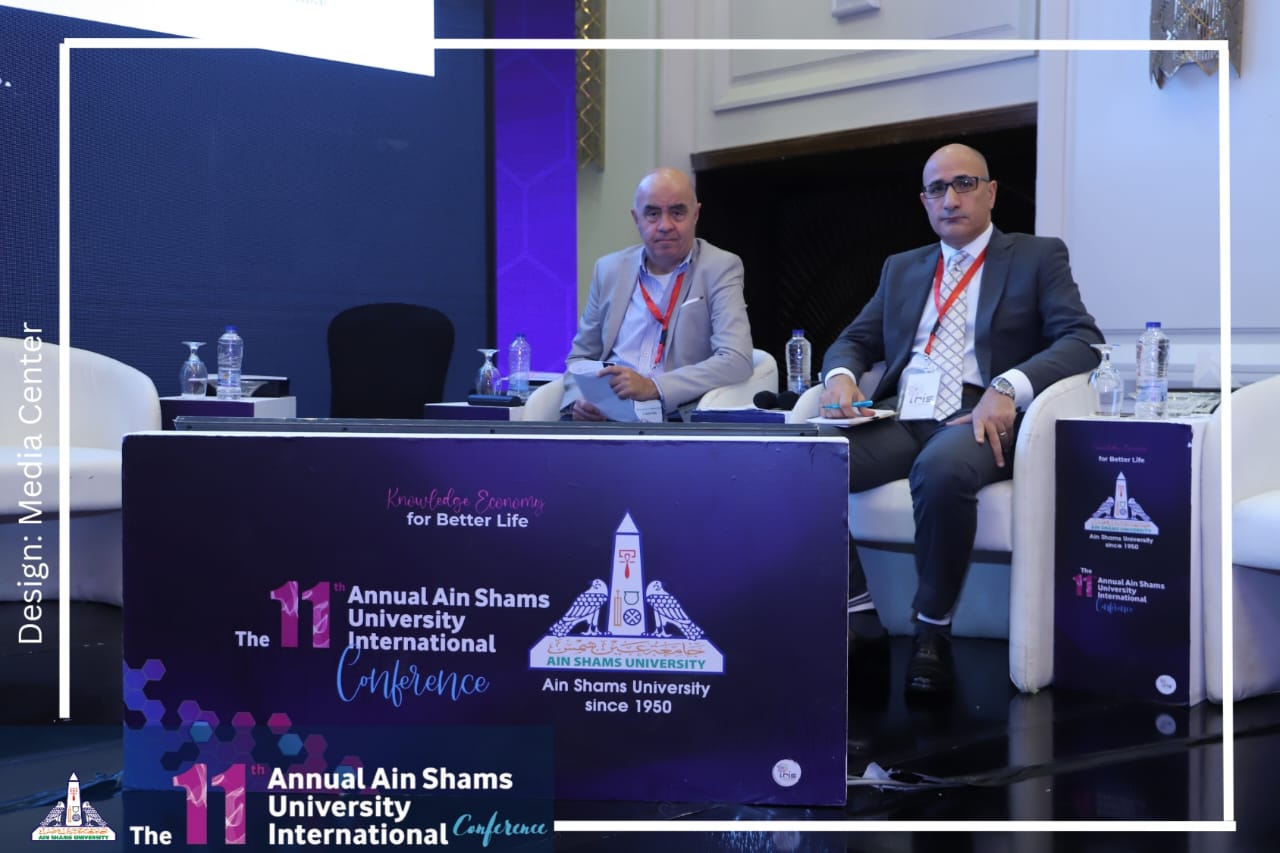 |
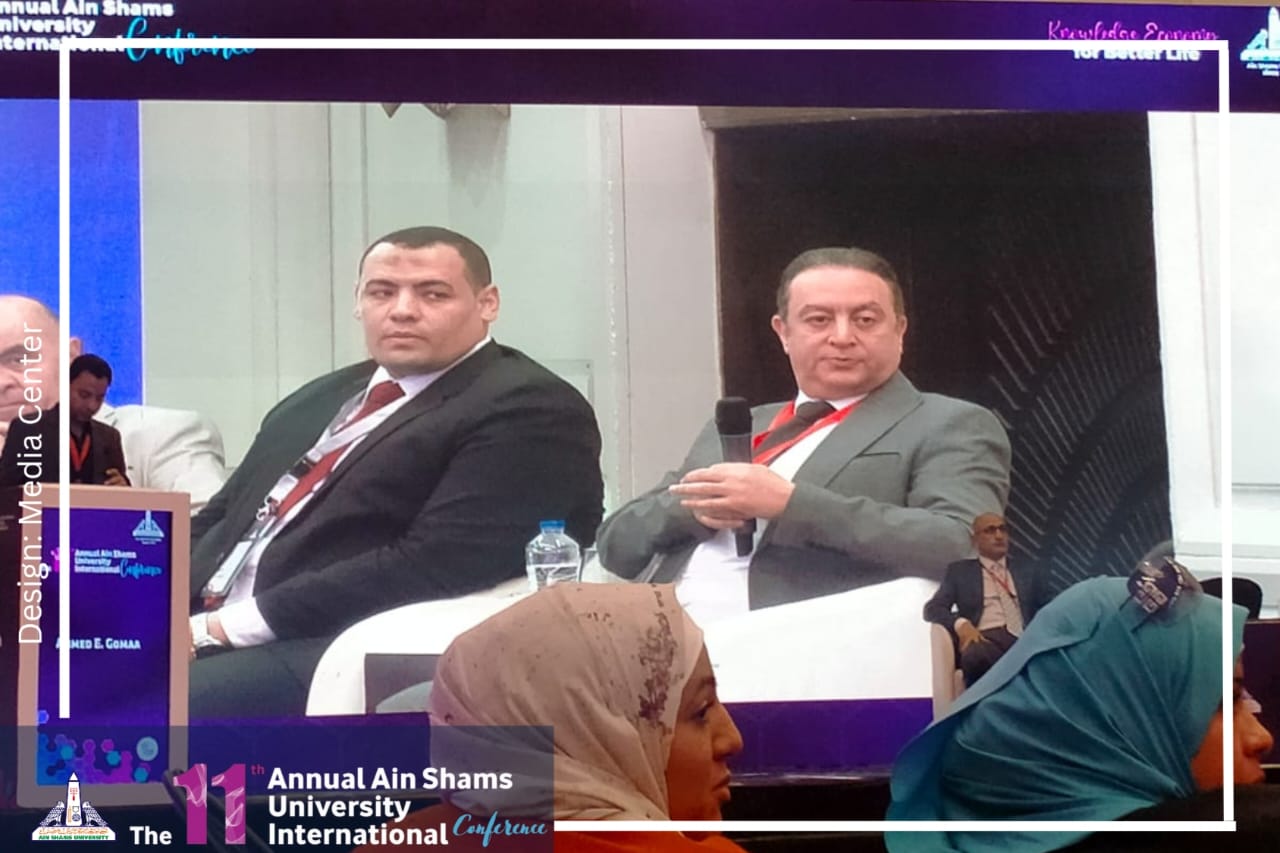 |
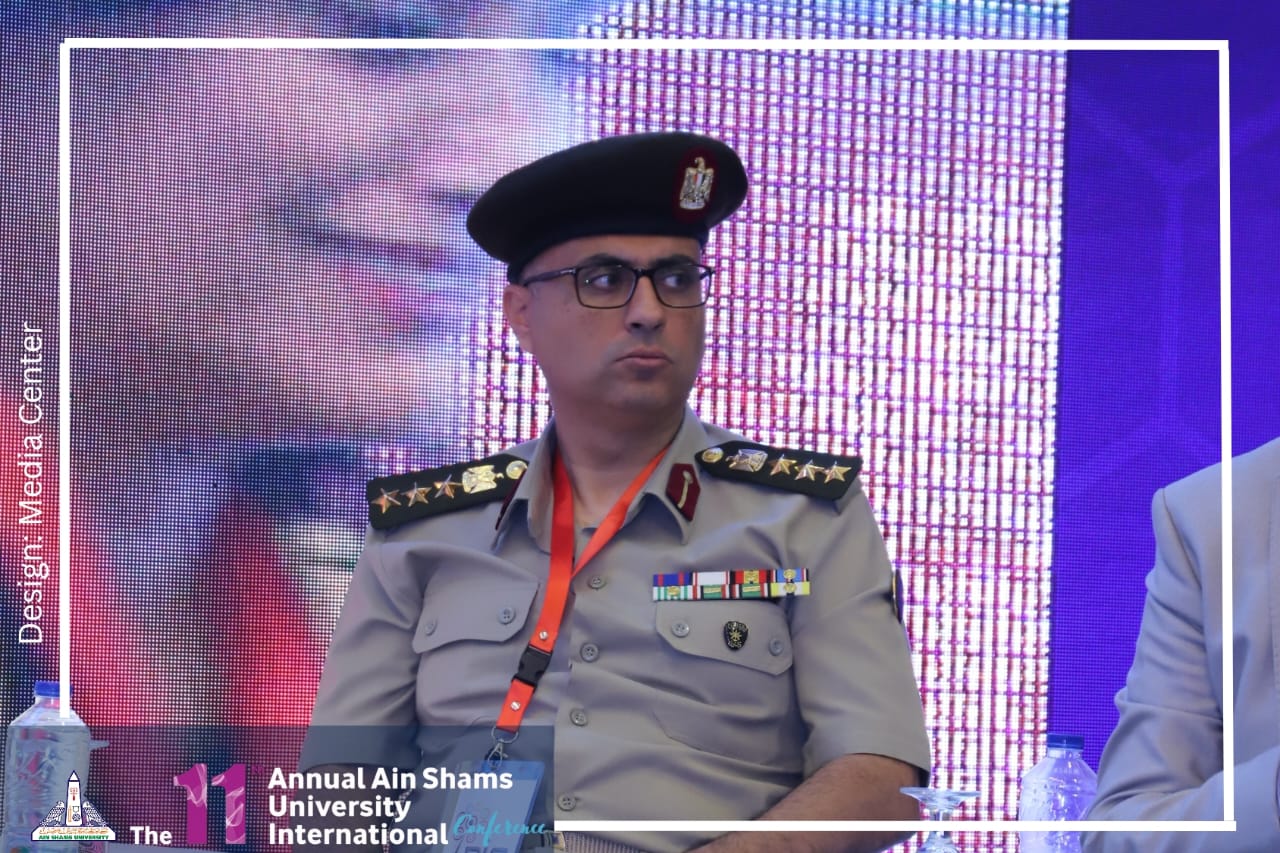 |
||
As reviewed by Prof. Yasser Bahloul, Professor of Microbiology at the Faculty of Science, Alexandria University, who explained the advantages of bioplastic compared to petroleum plastic in terms of health safety, ease of recycling, and its importance in the manufacture of many environmentally friendly products, as well as the global trend in doubling its production and the gradual shift from the use of ordinary plastic to bioplastic.
Prof. Ola Gumaa, a professor at the National Center for Research and Radiation Technology at the Atomic Energy Authority, shed light on the modern strategies used in controlling biofilms and methods of using them in microbial electrochemical technology in terms of electricity and energy production and the possibility of wastewater treatment.
Dr. Mohamed Gad Abdel-Ghany, Assistant Professor, Department of Microbiology, Faculty of Science, Ain Shams University, presented the method he developed using a nanometer probe to locate molecules on the surfaces of living microbial cells using an atomic force microscope.
The importance of determining the locations and quantities of these molecules is due to the fact that they are the main identifier for the body's immune system when it is exposed to infection, as it recognizes these molecules as stimuli for the immune system.
The method presented at the conference is the only one in the world that uses a highly sensitive nanometer probe that can detect specific molecules on the surface of the cell with an accuracy level of one part.
Students of the Biotechnology Program at the Faculty of Science, Ain Shams University also reviewed some applications of remote sensing and modern geographic information systems and the possibility of using them in biological control of pests, which is considered one of the safe alternatives to chemical control with severe consequences for the environment, through the production of maps of the environmental suitability of species.
In this context, a student at the Faculty of Biotechnology, October University for Modern Sciences and Arts, also reviewed in the last lecture of that session the use of natural yeasts as a safe source for the production of some nutritional supplements and the biotechnology methods used in production, as well as their various applications.
During the second session of the biotechnology theme "Biotechnology Industry in Health and Healthcare Management", a group of scientists and biotechnology experts from Egyptian and German universities reviewed a number of lectures.
During this session, Dr. Ahmed Gomaa - October University for Modern Sciences and Arts gave a lecture in which he discussed ways to take advantage of 3D bioprinting technology to obtain affordable prototypes that accelerate the development of new biomaterials, medical devices, and tissue engineered structures.
Also, Dr. Ahmed Abdel Wahed - Professor at the University of Leipzig, presented recent ideas on biotechnology applications in the local production of diagnostic reagents for diseases such as the mobile bag, which depend on various methods, including Nanopore sequencing, as one of the national priorities in the biotechnology industries, and then dealt with recommendations for international cooperation and global achievements, especially in Africa to achieve the United Nations Sustainable Development Goals.
Dr. Nourhan Hassan, a researcher at the University Hospital of Cologne, Germany, delivered a scientific lecture entitled "Biotechnology: From Radiation Oncology to Tissue Engineering", where she addressed the role of biotechnology in current developments in radiation oncology and tissue engineering science, including the development of more new treatments. Effectiveness and creation of functional tissue constructs that can be transplanted into patients to replace damaged or diseased tissue.
The lecture highlighted the role of proteins on the cell surface, called proteoglycans, which play a major role and influence the effectiveness of radiotherapy in breast cancer.
As a member of the research team, she referred to their EU-funded research project "BIOMET4D", which aims to develop a device made of biodegradable metal implants with 4D movability to be used in skin tightening and treatment of craniosynostosis.
This talk aimed to showcase the potential of biotechnology to revolutionize the fields of radiation oncology and tissue engineering and improve patients' lives.
The session also included a lecture by Prof. Abdel Bari Prince, Professor of Biotechnology at the Faculty of Veterinary Medicine, Cairo University and the Faculty of Medicine of the Armed Forces.
During which he discussed the great national efforts made by the Egyptian state to develop research in the field of industrial biotechnology and the government's continued support for biotechnology research by establishing a modern integrated city for the production and manufacture of vaccines to provide job opportunities and employ distinguished biotechnology graduates and support local companies to transfer new biotechnology innovations.
The second session ended with two distinguished lectures for biotechnology students at October University for Modern Sciences and Arts, during which they presented innovative research ideas for their research projects that use biotechnology in various fields.


.svg)



